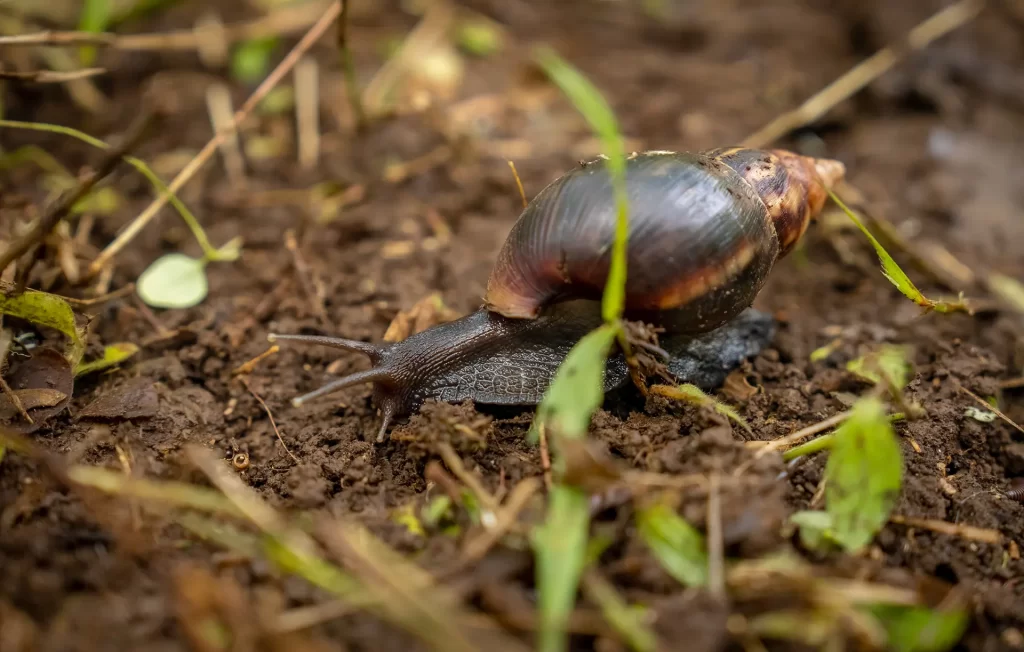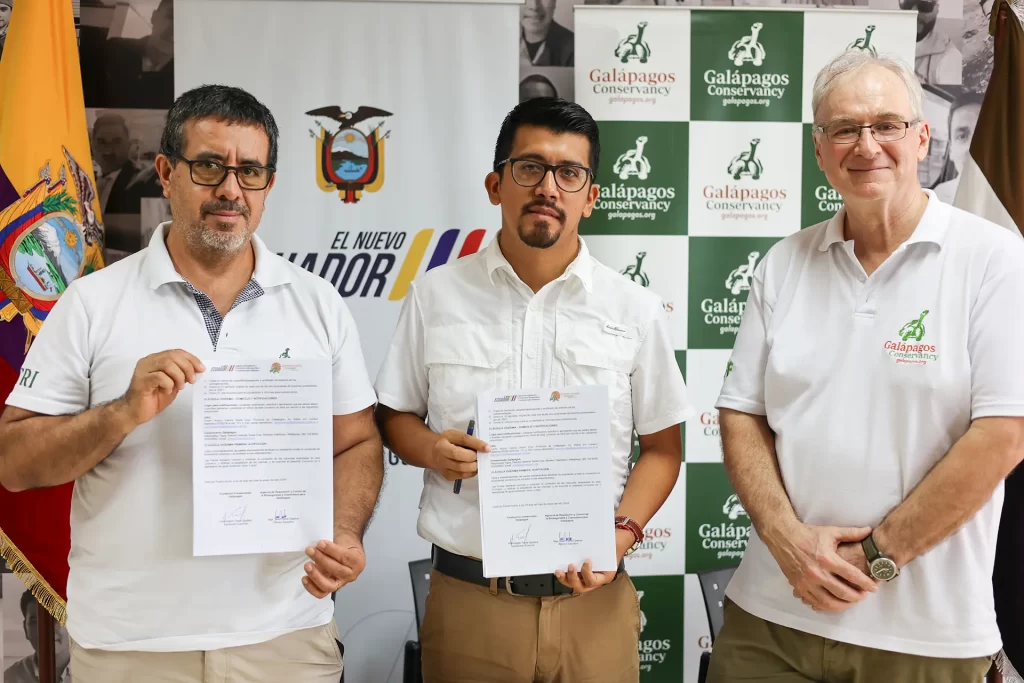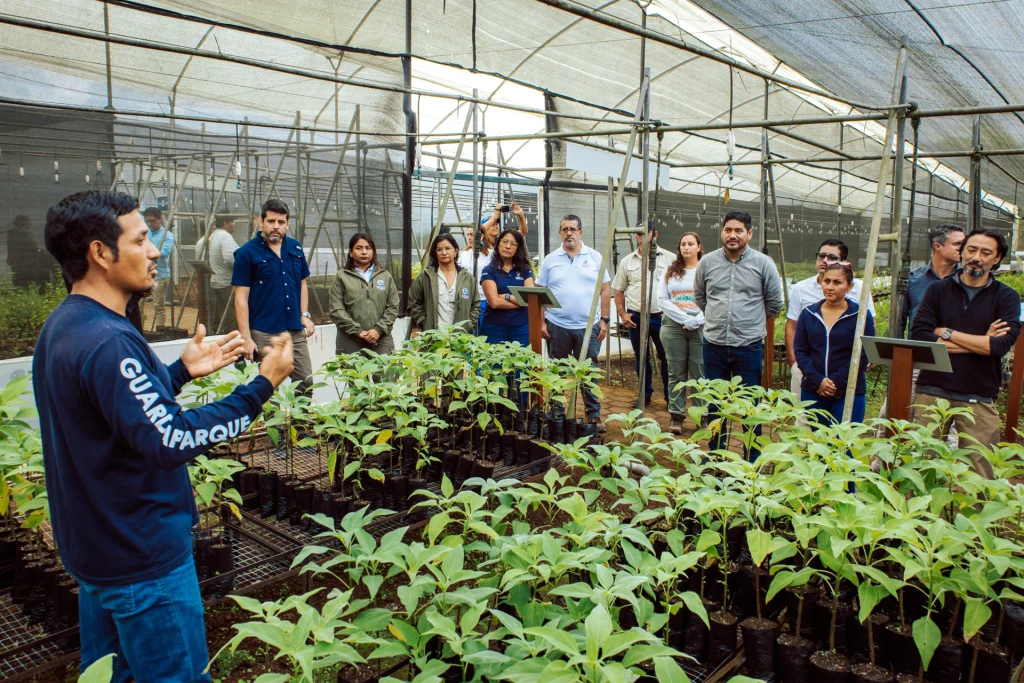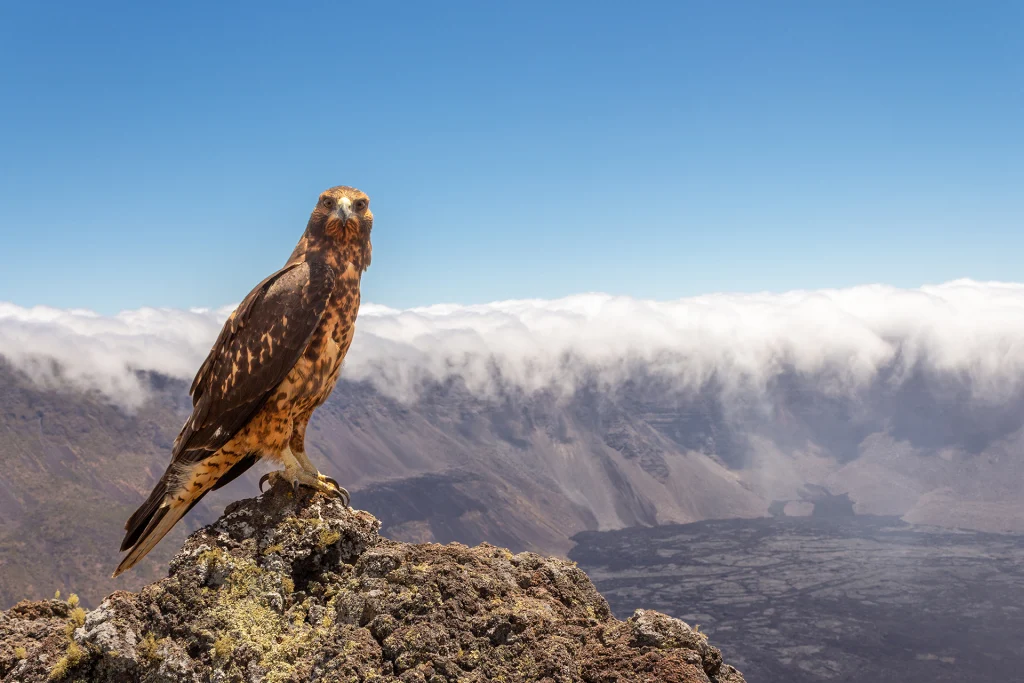Galapagos Conservancy is committed to conserving Galapagos Islands’ exceptional ecosystems. As a sign of our continued commitment to this cause, we renewed today our support for the Galapagos Biosecurity and Quarantine Control Agency.
Dr. James Gibbs and Washington Tapia, the General Director of Galapagos Biosecurity and Quarantine Control Agency renewed the agreement for 2024 with a simple but significant ceremony that signified a continuing commitment from both parties to cooperate.
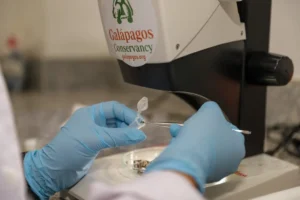
We will focus our funding in 2024 on two key areas. First, we will focus on mitigating the impact of introduced species that could be amplified by El Nino. Automating the affidavit will enhance the controls in order to prevent the introduction invasive species. These actions are vital to protect the Galapagos’ unique biodiversity and ensure its preservation for future generations.
Washington Tapia, a scientist, stressed the importance of collaboration, saying, “Our partners can count on our unwavering and steadfast commitment.” We believe that collaborative efforts and collaboration are crucial to the future of Galapagos .”
Galapagos Conservancy is proud to collaborate with the Galapagos Biosecurity and Quarantine Control Agency in order to protect this unique treasure. This collaboration has been made possible by the contributions of individuals like you who are dedicated to the conservation and preservation of this unique eco-wonder.
